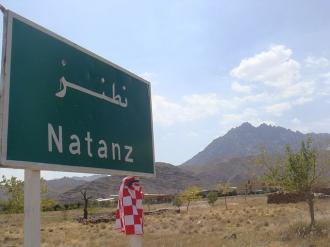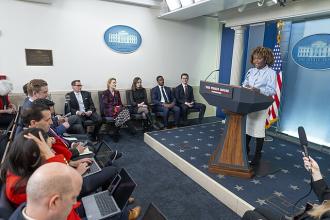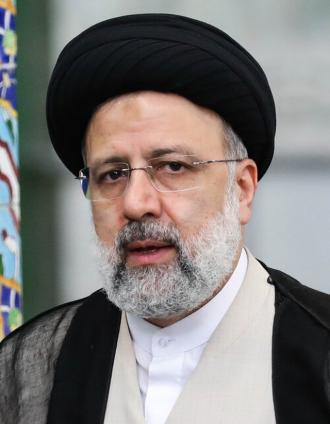Even a Taste of Torah is Powerful
More than two decades ago, I had a good friend who was then running an institution for teenage boys who were ill-suited to mainstream yeshivos ketanos and required a very different curriculum. Providing what they needed was very expensive and usually beyond the capacity of the parents to cover. As a consequence, the institution always teetered on the brink of closing.
Yet for years he kept it going, more often than not with some completely unanticipated salvation at the last moment. Every leil Shabbos, I would inquire after davening about his miracle story of the week. He rarely disappointed me. It was a great deal for both of us: I entered Shabbos uplifted and with a good story to relate at the Shabbos table, and he had someone with whom to share his weekly adventures.
My friend long ago entered the more staid world of running an American seminary, and I've been on the lookout for another ready source of feel-good stories. Of late a young avreich who lives nearby has stepped into the breech. Rabbi Moshe Shachor directs the men's side of Kesher Yehudi's program for pre-army academies (mechinot), and is a veritable font of my favorite kind of story – those of Jews being changed by exposure to Torah.
The Kesher Yehudi mechina program currently involves ten mechinot, with over 500 participants, with another six mechinot waiting to join if funding can be found. It consists of ten monthly meetings at the mechina, with outstanding lectures and study material on a major topic, such as Creation, Shabbos, the Chosen People; special gatherings throughout the year in connection to the chagim; and at least one Shabbaton in a religious neighbourhood. Each mechina participant is matched with an avreich or a frum woman partner, with whom they learn in person at the monthly meetings and are in regular phone contact. In most cases, that relationship continues throughout the mechina participant's IDF service.
About four or five months ago, Mechinat Tavor, located in Nazaret Ilit, which will be joining the Kesher Yehudi program this coming year, called Reb Moshe and asked him to set up a sample program for them on a visit to Jerusalem. Reb Moshe put together a few pages of Torah material that he felt would be of interest, and invited a number of avreichim who have been involved with the program to join him for an hour-and-a-half of learning with participants in the mechina.
End of the story. Or so it seemed, until a couple of months ago, when Rabbi Shachor received a call from one of the young avreichim who had learned with the group from Mechinat Tavor. A young man named Ido had called the avreich, who had been his chavruta, to say that he had time between the end of his pre-induction studies and being drafted, and he wanted to learn with him.
The next day, Ido came to Jerusalem and learned with his chavruta, who then brought him to meet Rabbi Shachor at Aish HaTorah, where he learns in a kiruv-oriented kollel. Ido told Reb Moshe that he wanted to learn another day, and the latter invited him to stay overnight at his home.
The next day, Ido accompanied Reb Moshe to tefillah and asked to put on his tefillin. They spent morning seder learning the beginning of Perek Meruba, and in the afternoon Ido attended some of the Essentials classes at Aish HaTorah.
Another avreich, who had participated in the first learning session with the group from Mechinat Tavor, recognized Ido and asked him to convey greetings to his chavruta from that session, Nevo. The next day Nevo excitedly called his chavruta from that one-time meeting. He chattered on about how much Ido had enjoyed his two days in Jerusalem.
The chavruta replied, "Fine, but what about you, Nevo?" Nevo told him that he lived far from Jerusalem, in a settlement close to Netanya. It just so happened that Nevo's chavruta was then in Netanya to visit his in-laws for Shabbos. Nevo drove over immediately to learn before Shabbat for an hour and a half.
Nevo's reaction to receiving drishat shalom from an avreich he had met only once months earlier provides an important lesson for each of us. Every friendly gesture, every signal that we care about our fellow Jew, even if he or she is not yet shomer Shabbat, is eagerly awaited and the response will often be far greater than we could possibly anticipate.
Now back to Ido. Ido has been in ongoing contact with Rabbi Shachor. In one conversation, he mentioned that he has started to regularly attend a shiur in Ramat Hasharon, not far from his home.
And he is eager to share his newfound excitement about learning Torah with as many of his friends as possible. Over the summer vacation, he created a week-long seminar for fellow graduates of his pre-army academy who are currently awaiting induction. There were sessions on Kuzari, Chassidut, and Aggadata. Ido invited Rabbi Shachor to give one of the lectures, and the latter spoke for two-and-a-half hours on the Maharal's understanding of mitzvah of loving our fellow Jew.
Now Ido and Reb Moshe are busy preparing a three-day learning seminar at Aish HaTorah on the Chagim for other graduates of the pre-induction academies who still have not received their call-up notices.
Rabbi Shachor has been involved for years in the Kesher Yehudi program for the pre-army mechinot. And he knew the power of the program as well as anyone. But even he could never have imagined how just one short learning session could trigger all the changes that Ido has gone through over less than half a year.
I look forward to further updates on Ido after davening.
_________________________________________________________-
Hail My Alma Mater
I found my chest swelling with pride recently over the letter sent by the University of Chicago, my undergraduate alma mater, to all incoming freshman restating the University's firm commitment to academic freedom: "We do not support so-called trigger warnings, we do not cancel invited speakers because their topics might prove controversial, and we do not condone the creation of intellectual 'safe spaces' where individuals can retreat from ideas and perspectives at odds with their own."
With that clear statement, the University of Chicago became the first elite American university to make clear that it will have no part in the assault of freedom of thought and expression on university campuses.
Dean of Student's John (Jay) Ellison's letter reiterated the university's long standing positions. The 1967 Kalven report, authored by First Amendment scholar Harry Kalven, opposed the university taking positions on the major social issues of the day. For the university to take a collective position, Kalven wrote, would have the inevitable effect of "inhibiting the full freedom of dissent on which it thrives."
Today, as social psychologist Jonathan Haidt, founder of the heterodoxacademy.com, points out, the only kind of diversity that has few advocates on campuses, is ideological diversity. Leading humanities and social science departments are conservative free zones. But the Kalven Committee comprised of distinguished academics, including one Nobel Prize winner, asserted, "A university, if it is to be true to its faith in intellectual inquiry, must embrace, be hospitable to, and encourage the widest diversity of views within its own community. . . . [I]t is a community which cannot resort to majority vote to reach positions on public issues."
In 2014, long after silly season, with college presidents encouraging staff to beware of "micro-aggressions," was in full swing, another University Committtee on Freedom of Expression, was convened under the leadership of former law school dean and provost Geoffrey Stone. The Stone Report quoted approvingly former President Hanna Holborn Gray's observation that "education is not intended to make people comfortable, it is meant to make them think."
"Although the University greatly values civility," Stone wrote, "civility and mutual respect can never be used as a justification for closing off discussion of ideas, however offensive or disagreeable they may be to some members of our community."
I have no doubt that the University of Chicago's decision to set itself apart from other elite institutions was not only wise but smart, and will serve to attract to Chicago an even larger slice of top high school students. Not only students of a conservative bent, but also political liberals – as was Harry Kalven and is Geoffrey Stone – who do not share the progressive penchant for declaring every "debate closed" and delegitimizing every view but their own.
A 2015 survey found that eighty per cent of college students think "freedom of speech should either be less limited on college campuses or there should be no difference compared to society at large," and about fifty per cent say they feel "unsafe" expressing unpopular opinions. But the radical students and the former radicals on the faculty and in the administration, raised on Herbert Marcuse's One-Dimensional Man, are running the asylum.
STILL, WHY DID I THRILL to Dean Ellison's letter? Over the last forty years, I doubt if I have set foot on the Hyde Park campus that was once home more than a handful of times. But the letter brought me back to one of the most formative periods of my life -- much more so than law school -- and made me remember why that was so. Though the college of my day was far from the Great Books curriculum of Hutchens college, where my father and mother met at 17 and 15, respectively, something of the respect for the Western Canon still remained. Western civilization was a required course for all students.
The conviction that the great minds of the past still had something to say to modern man, and that ancient wisdom is not to be lightly discarded, certainly made it easier for me to search my own tradition with an open mind.
Whenever we passed the campus as kids, my mother would remark that there are people there who spend their entire lives in study. And we would all laugh at the thought of staying in school for life. But the joke is on us: Three of my brothers and I are still involved in daily study of ancient texts.
Even for the Jew I have become, the University of Chicago's stance remains relevant. The Torah is not politically correct, and Torah Jews are a small and increasingly vulnerable minority. On many campuses today, it is easy to imagine bans on reading VaYikra. Unless we want Jewish students to have to become Marranos in the higher echelons of academia, we should pray that more universities follow the University of Chicago's lead.















